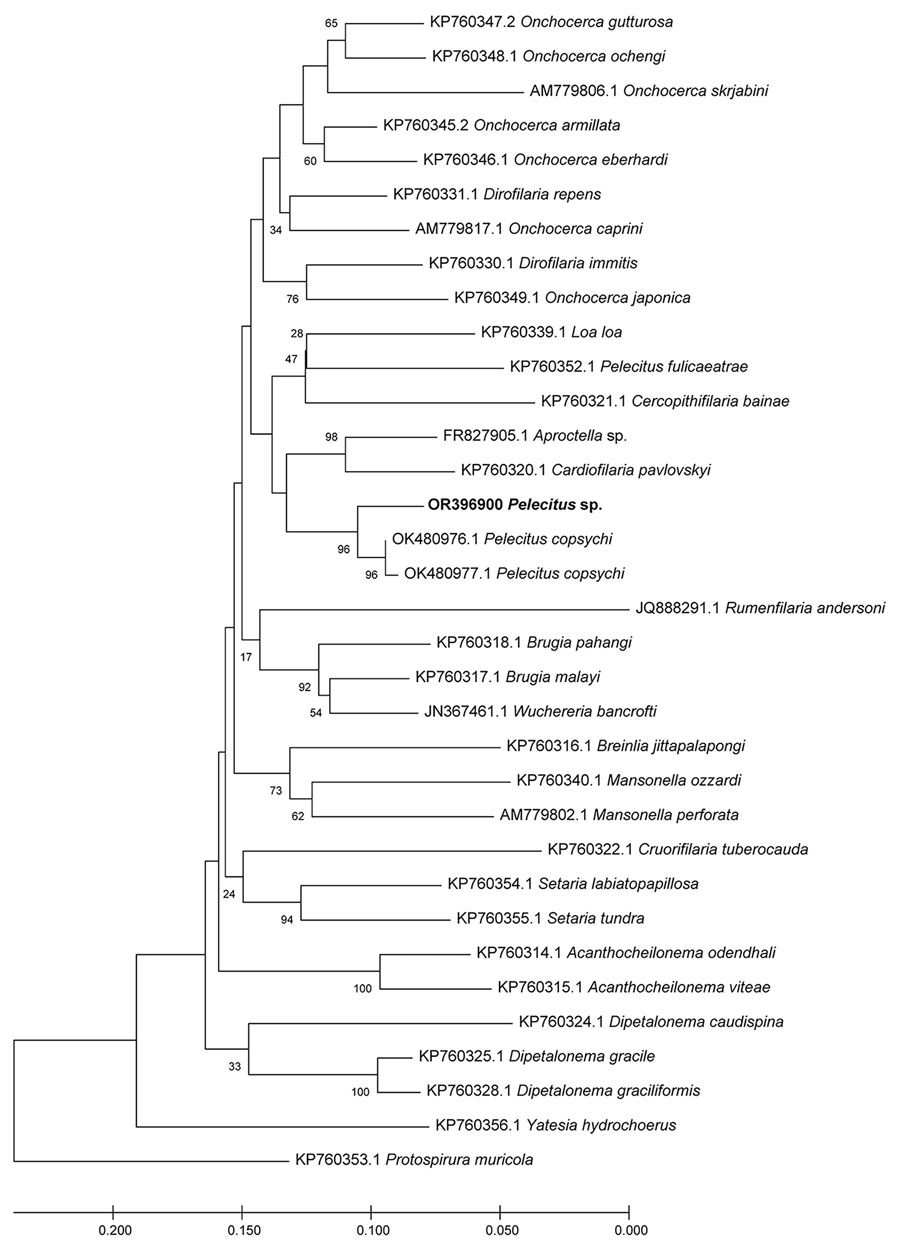Volume 30, Number 9—September 2024
Synopsis
Morphologic and Molecular Identification of Human Ocular Infection Caused by Pelecitus Nematodes, Thailand
Figure 3

Figure 3. Maximum-likelihood reconstruction of phylogeny on the basis of 12S rDNA sequences of a Pelecitus sp. nematode isolated from the left eye of a 61-year-old man in Thailand (bold text) and reference sequences from GenBank. Bootstrap scores (percentages of 1,000 replications) are presented for each node. GenBank accession numbers are shown. Scale bar refers to a phylogenetic distance of 0.05 nucleotide substitutions per site.
Page created: June 28, 2024
Page updated: August 20, 2024
Page reviewed: August 20, 2024
The conclusions, findings, and opinions expressed by authors contributing to this journal do not necessarily reflect the official position of the U.S. Department of Health and Human Services, the Public Health Service, the Centers for Disease Control and Prevention, or the authors' affiliated institutions. Use of trade names is for identification only and does not imply endorsement by any of the groups named above.